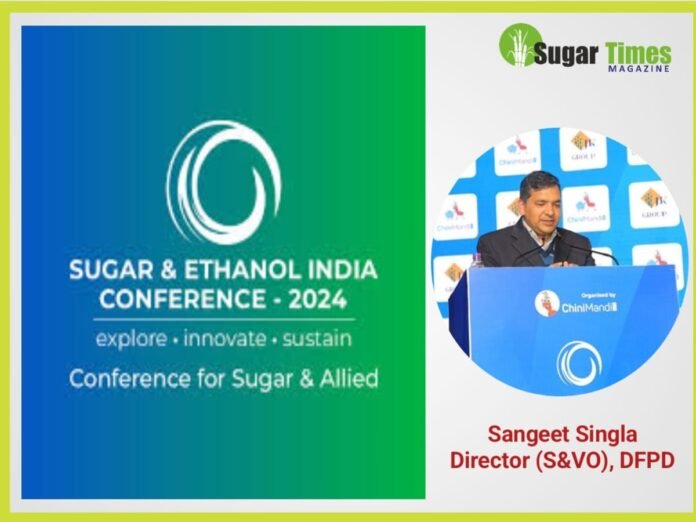Sangeet Singla, Director (S&VO) at DFPD, conveyed his thoughts during the 3rd edition of the Sugar and Ethanol India Conference (SEIC 2024) in Delhi, underscoring the need for advancements in the sugar sector. He emphasized that these innovations would not only enhance the sector’s efficiency but also contribute to its growth as a crucial provider of sustenance (“annadata”) and energy (“urjadata”).
Singla identified cane development as a pivotal focus area, stressing the urgency for the sugar sector to actively engage in research and development. He advocated for a departure from relying solely on sugarcane research institutes and government entities, proposing sustained industry-based or sponsored research. Highlighting the limited impact of single agreements, he called for long-term, multi-pronged efforts, suggesting that industry associations and major groups allocate resources for research and development to benefit the sector.
In addition, Singla addressed packaging innovations, urging the sector to explore alternatives beyond the mandated 20% jute bags. He proposed a collaborative approach to provide not only for the sugar sector’s packaging needs but also to offer sustainable solutions for the entire country. Singla envisioned the sugar sector leading in bioplastic development, aligning with the Prime Minister’s call to reduce plastic usage globally.
Singla questioned the energy-intensive process of crystallizing sugar syrup, suggesting research efforts to explore the feasibility of utilizing sugar syrup directly. This, he argued, could lead to energy savings and address packaging concerns.
Advocating for digitization, Singla urged sugar mills to adopt advanced technologies, especially artificial intelligence (AI), in their operations and trading practices. He saw potential in algorithm-based trading in the sugar sector, emphasizing the need for a comprehensive digitized environment.
Finally, Singla recommended diversification into value-added products to counter the cyclic nature of sugar production. Beyond ethanol, he envisioned the creation of value-added sugar products, aligning with global trends, which would result in better prices and margins, ultimately benefiting both farmers and sugar millers.




